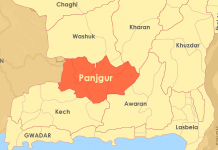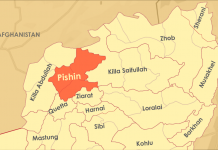Author: Fahad Baloch
Abstract:
Gwadar, due to its strategic importance, has attracted global attention as a potential hub for international trade, contributing significantly to the cumulative GDP (Gross Domestic Product). With its deep-sea port positioned closest to the Strait of Hormuz, it serves as a crucial link connecting disparate parts of the world. Consequently, it has become a coveted target for states seeking to assert control over international commerce through the involvement of multinational corporations and non-state actors, thereby influencing the global order.
Gwadar has historically served as a testing ground for systematic arrangements aimed at encircling a location to assert overall control and alienate its people. Presently, similar tactics are being re-implemented by the state in an effort to regain control over Gwadar and other cities in Balochistan. This reflects the state’s persistent pursuit of profound control over such strategic areas and underscores its ongoing efforts to influence regional dynamics.
Historical Records of Colonial Systematic Arrangements:
Historically such colonial systematic arrangements are well-documented, spanning from past epochs to more recent times. Various colonial powers, including France, Portugal, Belgium, the United States of America, and European nations like Britain and Israel, established enclaves within their colonies, such as Vietnam, Guinea Bissau, Congo, Hawaii, and regions like Hindustan and Palestine, respectively.
During the period of post-colonialism, these states unjustly withheld control of cordoned-off areas from the native inhabitants, ruling without accountability to any legitimate authority. Today, we observe a new phase of colonialism, characterized by indirect control and intrusion through non-military channels, signaling a shift from direct military rule to more covert means of influence and domination.
Nevertheless, historical records of cordoning off or enclosing places by colonial states serve to strengthen their interests while preemptively quelling potential resistance or uprisings from indigenous populations. These actions were often motivated by a desire to maintain control and exploit resources without facing significant opposition from local inhabitants.
Casual Logics by the Colonial States:
The colonial states employed various casual logics to justify their actions, including the cordoning off of places within their interests, such as the fencing of Gwadar’s deep-sea port. These states often cited the perceived lack of civilization among indigenous peoples as a reason for restricting their access to these areas, claiming that indigenous populations were not yet civilized enough to enter without filtration. However, this rationale lacked a systematic understanding of civilization.
Additionally, colonial powers argued that enclosing areas was necessary for city development, as it would keep natives away and prevent potential opposition to the proposed developments. They also justified such actions on the grounds of security concerns, aiming to minimize the risk of insurrection. However, these measures did not effectively prevent uprisings, nor did they successfully detach indigenous populations from their lands.
Flaws of Logics:
The aforementioned logics indeed present significant flaws and fail to provide valid justification for detaching cities from their people. The argument of uncivilization is paradoxical, as colonial states simultaneously strip natives of their resources while deeming them uncivilized.
Similarly, the logic of security issues is flawed, as it suggests that cities face threats from their own inhabitants rather than from external sources. It is illogical to assume that individuals who reside in a city and seek survival therein pose security risks. People typically feel safest among those they know, with whom they share a common language and psychological makeup, and whom they can protect.
In summary, these flawed logics do not stand up to scrutiny and fail to provide adequate rationale for the detachment of cities from their populations.
The Gwadar Case:
Gwadar is an internationally known city poised to become a significant contributor to the cumulative economy. However, I have come to the conclusion that Gwadar is at risk of being alienated from the natives of Balochistan, including the indigenous people of Gwadar itself, due to the proposed fencing with barbed wires.
In other words, the justification of security concerns to cordon off Gwadar is fundamentally flawed and erroneous. I assert that the decision to fence Gwadar is paradoxical. On one hand, it is claimed that fencing is necessary to maintain law and order and address potential security issues. On the other hand, this fencing restricts the free entrance of the Balochistan people, who are the indigenous inhabitants, not the ones imposing the fencing.
In concluding my points, drawing on my understanding of colonial practices, I argue that the fencing of Gwadar with barbed wire is not meant to address unavoidable circumstances, stabilize law and order, or deal with security threats. Instead, it aims to alienate Gwadar from its own people. This act of detachment resembles a colonial tactic designed to prevent the people of Gwadar from communicating freely with their fellow citizens inside and outside the city. Without physical communication, they may not be able to resist injustices, ultimately leading Gwadar into the hands of outsiders.
I strongly advise the downtrodden people of my homeland: do not despise yourselves to the point where others demand your submission! Do not view yourselves as so insignificant that others stand and demand your loyalty, asking you to hand over your homeland! Take decisive steps to resist this fencing and the detachment of Gwadar to ensure that your home does not become a no-go area for you in the near future. This fencing is a wound to our hearts that is unbearable by any means.
Disclaimer: The views and opinions expressed in this article are those of the author and do not necessarily reflect the official policy or position of The Balochistan Post or any of its editors.






























